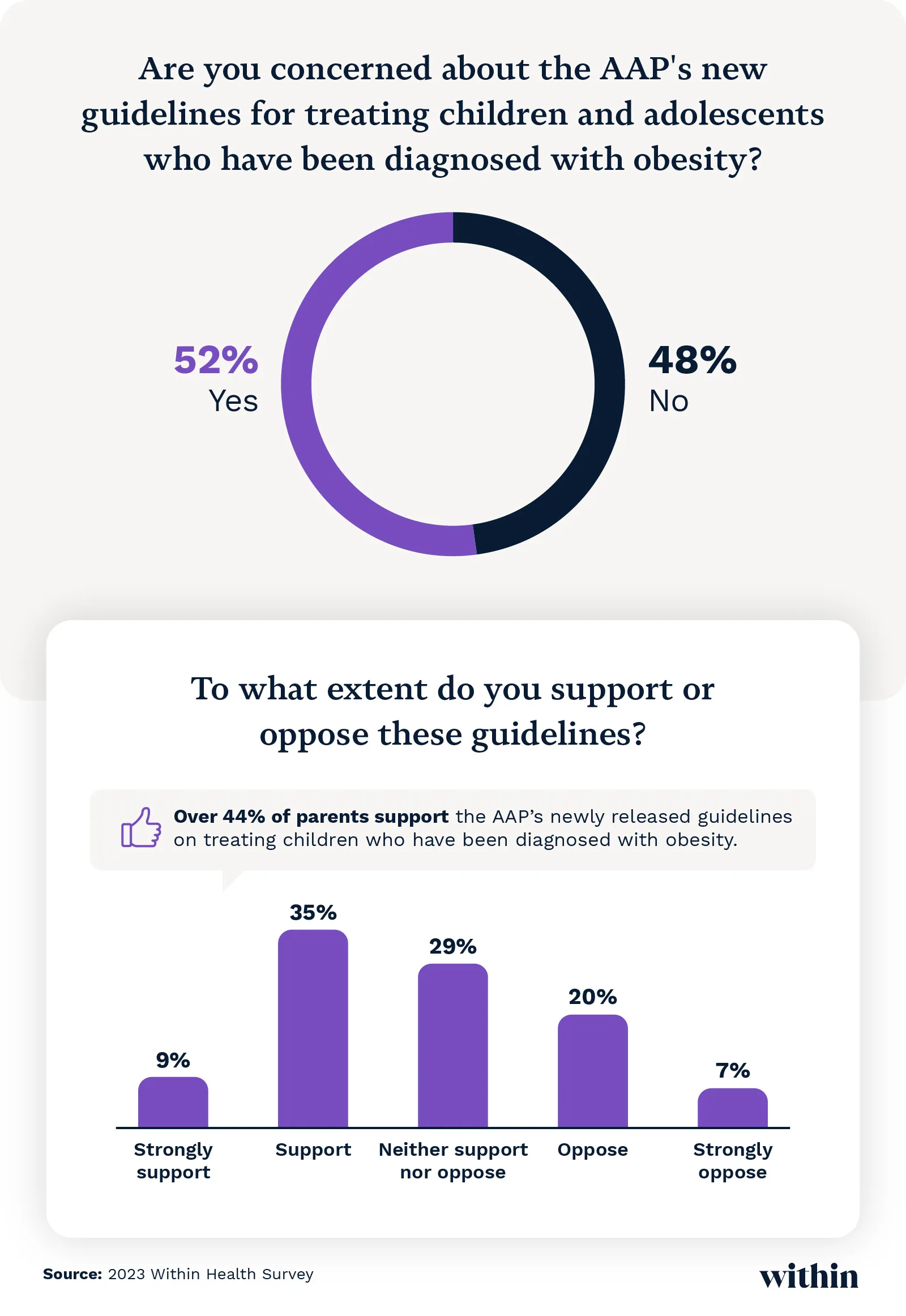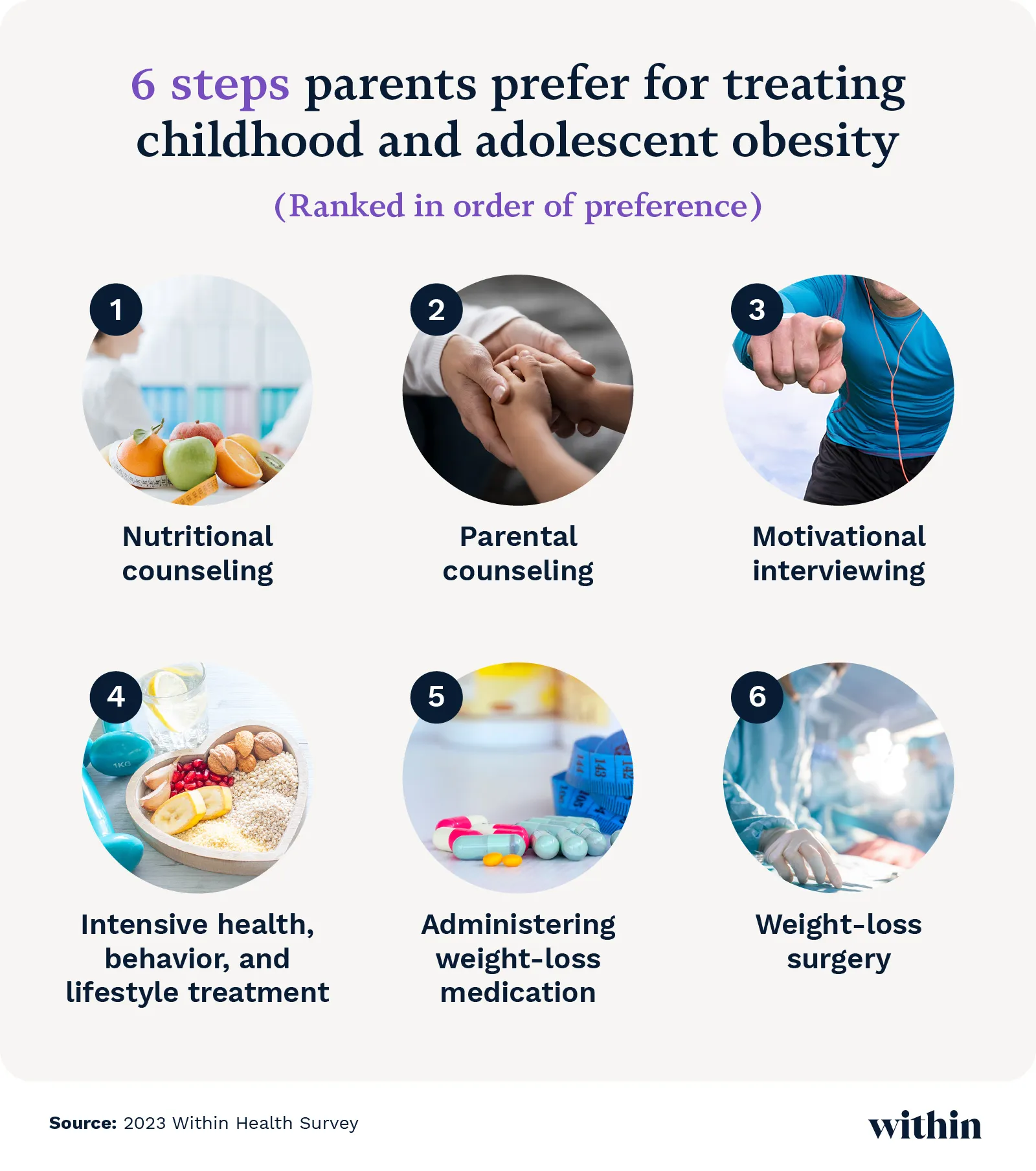
When it comes to children’s health, the American Academy of Pediatrics (AAP) has helped craft policy on everything from car seats to school start times to vaccines. But their recently released guidelines for evaluating and treating childhood "obesity" has been more controversial.
Beyond diet and exercise tips, the AAP now suggests medications and even surgery for some cases. They state that some kids aged 12 and older who have “obesity” may need pharmacotherapy (medication), and some who are 13 and older should be evaluated for surgical treatment.
These treatments might be hard for some parents to find, let alone afford. They could also cause further social and emotional consequences for children who have already experienced the shame, low self-esteem, and lost sense of bodily agency that can result from an "obesity" diagnosis. But even the AAP’s less damaging nutrition, exercise, and behavioral therapy guidance alone can be difficult for parents to access.
To explore perceptions about these new recommendations, Within Health surveyed over 1,000 parents about whether they support them and if they would (or could) follow them.

What parents think of the new AAP childhood obesity guide
Takeaways:
- 72% of parents can’t afford the AAP’s new treatment recommendations for childhood and adolescent obesity.
- Only 15% of parents say their children’s pediatrician has a dietitian. Alarmingly, 55% are unsure, and 30% can’t access a dietitian through their pediatrician.
- 85% are unfamiliar with the medications recommended by the AAP for treating childhood obesity, which include Wegovy, Orlistat, Osymia, and Saxenda.
- Nearly one-third of parents would consider administering weight-loss medication, and 15% would consider weight-loss surgery for their children if recommended by a health professional.
- Parents who experienced obesity as children were more likely to support the AAP’s new guidelines (52%) than those who didn’t (42%).
- Democrats were more likely to support the AAP’s new guidelines (52%) than Republicans (38%).

About Within Health
Our care teams deliver extraordinary outcomes for people from all walks of life who suffer from eating disorders. No matter your age, language, or background, Within Health can create an effective treatment plan just for you.
Methodology
We surveyed 1,024 parents about their perceptions of the AAP’s new guidelines for childhood and adolescent obesity. The results were collected between January 17-18, 2023.
Fair use
Learn something interesting from our findings that you’d like to share? You’re welcome to do so for any noncommercial purpose, so long as you include a link to this page in doing so.
Disclaimer about "overeating": Within Health hesitatingly uses the word "overeating" because it is the term currently associated with this condition in society, however, we believe it inherently overlooks the various psychological aspects of this condition which are often interconnected with internalized diet culture, and a restrictive mindset about food. For the remainder of this piece, we will therefore be putting "overeating" in quotations to recognize that the diagnosis itself pathologizes behavior that is potentially hardwired and adaptive to a restrictive mindset.
Disclaimer about weight loss drugs: Within does not endorse the use of any weight loss drug or behavior and seeks to provide education on the insidious nature of diet culture. We understand the complex nature of disordered eating and eating disorders and strongly encourage anyone engaging in these behaviors to reach out for help as soon as possible. No statement should be taken as healthcare advice. All healthcare decisions should be made with your individual healthcare provider.
Resources
FAQs




Further reading

Understanding your teen with anorexia nervosa

The importance of family during eating disorder recovery

How to talk to your children about food, eating habits, and bodies

How to talk to your kids about diet culture when they’re given “healthy eating” homework

Signs a loved one may be at risk of an eating disorder relapse

Prader-Willi syndrome

How to support your child returning to school after eating disorder treatment

How to tell your parents you have bulimia

Food maintenance syndrome (foster care)

Family-based therapy for treating eating disorders

Examining the effectiveness of the Maudsley method to treatment for anorexia

Eating disorder treatment programs for children

9 tips on how to support a spouse with an eating disorder


